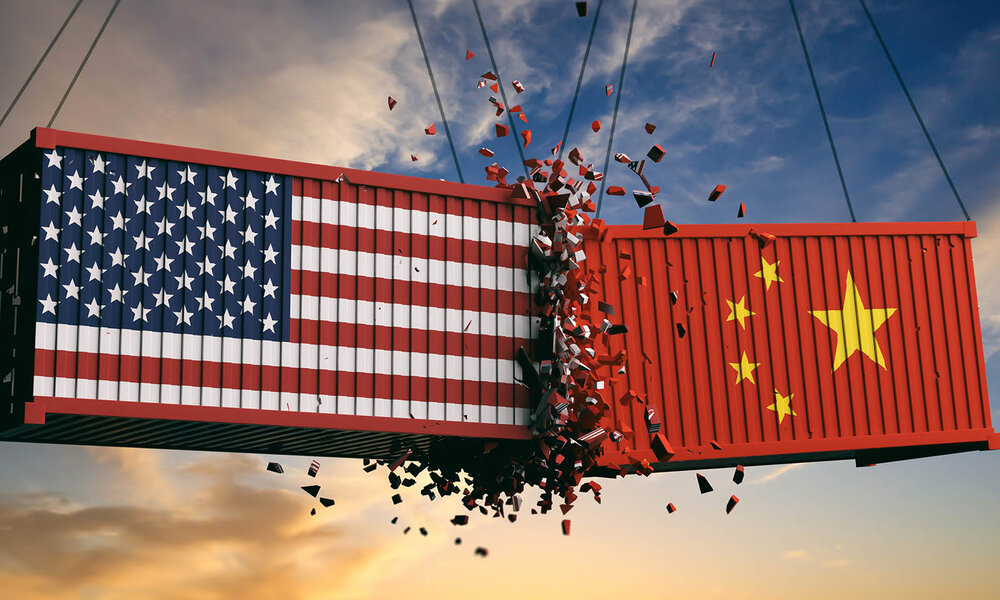
The historic trade war between China and the United States reaches a new stage. During the last few months, the new focus of restrictions imposed by the US government has been the semiconductor marketprohibiting manufacturers from exporting graphics, components and processors to Chinese companies.
In response, the Cyberspace Administration of China (CAC) in May banned its Chinese critical information infrastructure operators from purchasing products from Micron Technologyalleging that these pose a significant security risk.
Beijing’s latest move
The last measure applied, at the beginning of July, has been the limitation of exports of products such as gallium and germanium, two essential metals in the manufacture of chips. National interests and security issues are also alleged.
These new Chinese restrictions They will enter into force on August 1. and will apply to eight gallium-related products and six germanium-related products. This is a striking measure, since China is the main producer of this type of metals by controlling 80% of world production of rare minerals. Now, exporters must apply for and obtain new licenses to avoid being penalized.
In this situation, the US would consider limiting the access of Chinese companies to the cloud computing services offered by American companies.
National pressure against the Biden administration
Faced with this spiral of tension, several executives of companies such as Intel, Qualcomm either nvidia They have met with Joe Biden to discuss the situation and the policies that affect technology exports to China, putting an end to this spiral of tensions.
Among the attendees was Antony Blinkensecretary of state who recently traveled to China, or Gina RaimondoSecretary of Commerce, in addition to the CEOs of the three aforementioned companies; Pat Gelsinger (Intel), Jensen Huang (Nvidia) and Christian Amon (Qualcomm).
New restrictions for the Asian giant are expected to arrive in October, which is why before it happens, the Semiconductor Industry Association (SIA) of the USA has formally asked Washington to end the sanctions. The technology industry has anticipated the policies applied, as it is aware that all this could lead to a cessation of supplies.
The new focus of restrictions
The latest moves by the US have raised concerns about the development of AI systems. Hence it takes time Banning the sale of Nvidia’s most powerful graphics cards to Chinadespite the fact that the country has tried to circumvent these restrictions.
As expected, this situation has ended up having repercussions in the shares of companies in the sectorsuch as the aforementioned Nvidia or Advanced Micro Devices (AMD). Hence, they have lost 1.81% and 0.19% respectively. Micron Technology also experienced slight falls, although its gains ended up being 0.42%.
Faced with this situation, Nvidia announced the offer of a new advanced chip for China called A800, thus complying with export control regulations. Also modified his H100 chip in early 2023 to comply with the regulations. But if the new restrictions apply, the US Commerce Department would also ban the sale of A800 chips without a special export license.
Shares of Chinese AI companies have also suffered significant falls. The Chinese AI Index, CSIrecently lost 3%, while shares of Inspur Electronic Information Industry (listed in Shenzhen) plunged 10%. Similarly, the actions of Chengdu Information Technology of Chinese Academy of Sciences they lost almost 8%.
On the other hand, the shares listed in Hong Kong of Alibabawhich launched its own version of ChatGPT, fell 1.6% and those of Tencentwhich is building its own AI model, were down 1.58%.
The impact on the sector
The semiconductor industry maintains the common goal of protect the benefits of trade with China. The Asian giant provides them with more than 20% of their total income, which would mean a significant loss if the restrictions are not paralyzed.
In 2022 alone, China accounted for $180 billion in the semiconductor market, more than a third of the total $555.9 billion that were registered.



